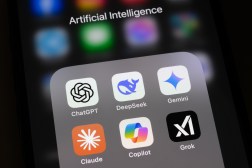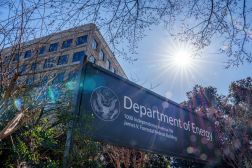Anthropic makes generative AI widely available at major national lab

Anthropic is making the enterprise version of its chatbot Claude available to the entire staff of the Lawrence Livermore National Lab, the artificial intelligence company announced Wednesday.
The expansion comes as generative AI companies look to deepen their relationship with the federal government’s national lab system — and amid growing interest in agencies’ use of the technology.
Anthropic said the expansion comes after a pilot, as well as an event in March that allowed thousands of scientists based at the California lab to learn about the technology. The company said the program, which involves its Claude for Enterprise product, constitutes one of the most significant lab deployments of AI at the Energy Department.
As many as ten thousand national lab employees will now be able to use generative AI for their work.
Lawrence Livermore will eventually have access to a forthcoming FedRAMP High service, once it’s approved and accredited, meaning lab scientists will be able to use Claude on unclassified data that requires that level of accreditation. The company did not say whether it was working with a particular agency sponsor on the FedRAMP process.
“We’re honored to support LLNL’s mission of making the world a safer place through science and technology,” Thiyagu Ramasamy, Anthropic’s head of public sector, said in a statement. “This partnership shows what’s possible when Anthropic’s cutting-edge AI meets world-class scientific expertise.”
Both Anthropic and OpenAI have been working with the national labs on artificial intelligence research and on applications of generative AI for science.
In a blog post, Anthropic said that Claude would help the lab with scientific advancement, including analyzing datasets, generating hypotheses, and exploring new research directions. Like other federal agencies, the lab will also be able to use the technology to automate and streamline routine tasks.
The technology will be used by teams working on climate science, supercomputers, and other applications, the announcement said.






